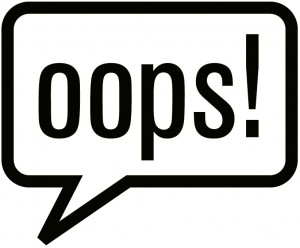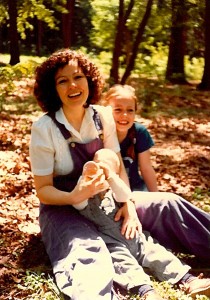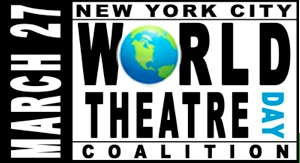A dear friend asked me recently, while looking oh-so-confused: “What IS Theatrical Intelligence, anyway?”
I was mortified.
I thought to myself, I’d better write A SUMMARY to explain what it means and why it matters.
So here goes:
Theatrical Intelligence is a system that identifies and captures your unique area of talent in order to bring it into your work and your workplace. It’s based on the theatrical production model, which is built on the foundation of all theatre: COLLABORATION.
Why does this matter?
51% of Americans describe themselves as not engaged or actively disengaged at work1. This is disturbing!
I’m convinced that we all come into the world with multiple intelligences2., and as we morph into grownups, somehow it disappears. Theatrical Intelligence is a system that can bring it back to life; it re-defines the way we engage in our work and in our workplace. I call it “the fun part of being smart”.
The system consists of EIGHT ROLES, SIX PRINCIPLES and EIGHT PHASES.
A. THE EIGHT ROLES are the professionals required for a commercial, theatrical production. ONE (or more) role probably describes you: 1. PLAYWRIGHT 2. PRODUCER 3. ACTOR 4. DIRECTOR 5. DESIGNER 6. MANAGER 7. TECHNICIAN 8. CRITIC B. THE SIX PRINCIPLES are shared by every person working on the production: 1. EVERYONE SHARES THE SAME GOAL The success of the show is top priority for every stakeholder. 2. EVERYONE SHARES AN EQUIVALENT RISK If the show is a bust, if tickets don’t sell, the show closes and payroll stops.3. COLLABORATION RULES! Everyone knows what everyone else does, and respects it. 4. THE WORK MATTERS The show has some personal meaning to every professional working on it. 5. FAILURE IS YOUR FRIEND It’s the quickest way to learn. 6. SUCCESS REQUIRES THE COURAGE TO STEP INTO THE UNKNOWN Entering unexplored territory leads to defining tomorrow’s standard. C. THE EIGHT PHASES One (or more) role “takes the lead” in each of the phases, supported by other roles as required. The remaining roles fade into the background, active if necessary, according to the phase of production. 1. CREATION
Leader: PLAYWRIGHT Support (if the work is commissioned): Producer 2. DEVELOPMENT Leader: PLAYWRIGHT Support: Actor/Director 3. PRE-PRODUCTION Leader: PRODUCER Support: Director/Designer/Manager/Technician 4. REHEARSAL Leaders: DIRECTOR/ACTOR Support: Producer/ Playwright/Manager 5. PRODUCTION* Leaders: MANAGER/TECHNICIAN Support: Producer/Director/Designer 6. TECHNICAL REHEARSALS/PREVIEWS* Leaders: DIRECTOR/DESIGNER Support: Manager/Technician 7. OPENING Leader: CRITIC Support: Playwright/Director/Actor/Designer 8. RUN OF PLAY Leader: PRODUCER Support: Critic/Playwright/Director/Actor/Designer/Manager/Technician *5 and *6 are concurrent phases
It’s a great gift to have spent almost 50 years in the theatre industry. It has given me the opportunity to observe the impact of theatre on a wide range of non-theatre folks. It’s fascinating and fun. I’ve led Theatrical Intelligence workshops that have opened new perspectives and exciting possibilities to many who begin in that 73%, and then happily join the 27-percenters.
So I’m continuing to define (and refine) the concept. Please let me know if you’re intrigued by this, or if you have any questions. And thanks in advance for helping me spread the word about Theatrical Intelligence… it really is the fun part of being smart!






Recent Blog Comments